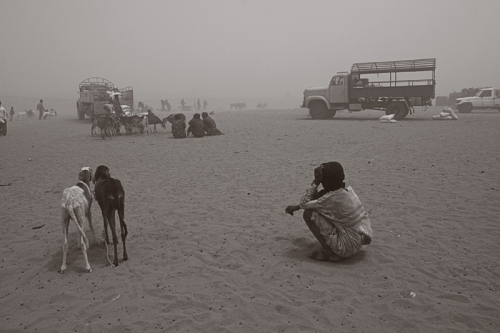- Washington “follows with interest” Morocco’s openness onto Africa (John Kerry)Posted 11 years ago
- The trial of South African Paralympic champion Oscar Pistorius opened in Pretoria on Monday.Posted 11 years ago
- USA welcomes efforts of King Mohammed VI in MaliPosted 11 years ago
- Egypt’s population reaches 94 millionPosted 11 years ago
- Mugabe celebrates his 90thPosted 11 years ago
- Moroccan Monarch to Build a Perinatal Clinic in BamakoPosted 11 years ago
- King Mohammed VI handed a donation of bovine semen for the benefit of Malian breeders.Posted 11 years ago
- Moroccan King’s strategic tour to Africa: Strengthening the will of pan African Solidarity and stimulating the south-south cooperation mechanisms over the continentPosted 12 years ago
- Senior al-Qaida leader killed in AlgeriaPosted 12 years ago
- Libya: The trial of former Prime Minister al-Baghdadi AliPosted 12 years ago
Food Insecurity the Next Crisis for Mali

Aid organizations have warned that border closures as a result of the ongoing military conflict could aggravate already high levels of food insecurity
Many more northern Malians are likely to face severe food shortages in the coming days and weeks if markets remain blocked by border and road closures, and humanitarian access remains limited, warn food security agencies.
The border with Algeria is officially closed as a result of the conflict that broke out on 11 January between Malian and French forces and Islamist groups that were occupying the north. As a result, the amount of food coming through has halved, according to the UN World Food Programme’s (WFP) Vulnerability and Analysis Mapping Unit.
Algeria supplies almost all markets in Kidal Region in northeastern Mali with rice, couscous, oil and milk – the staple diet of northern Malians. While some trucks can get through, traders are reluctant to travel because of strict border controls and fear of further aerial bombardment, says the WFP analysis.
Mopti markets also supply northern regions with significant imported rice stocks and millet – availability of which has dropped by 40 percent in Kidal since January 2012. They also cost 120 percent more than the five-year average, according to WFP.
“Should the situation last, food security is foreseen to worsen severely in the coming days,” says WFP.
Some Gao (central-northeastern Mali) and Kidal residents tried to flee across the Algerian border but were forced to return.
Kidal residents rely on weekly markets to buy and sell the bulk of their food, but these remain closed or have been severely disrupted. Many traders in Kidal and Gao regions closed their shops for fear of looting, say residents and aid agencies.
Aid agencies are worried the blockages could aggravate already unusually high food insecurity levels in the north: of the 1.8 million people in the north, 585,000 are food insecure and more than 1.2 million are at risk of food insecurity, according to a WFP food security assessment.
Local NGO Sol estimated families in Kidal have on average 10 days’ worth of cereal supplies.




